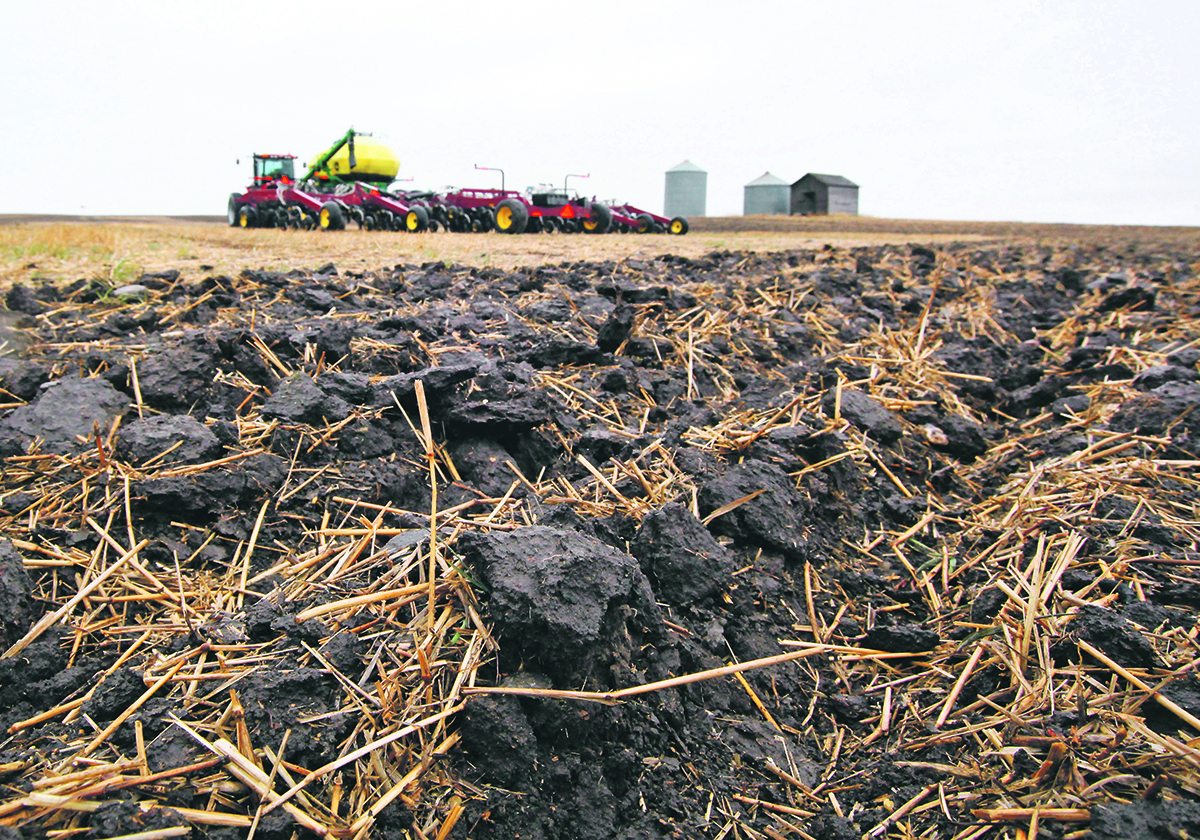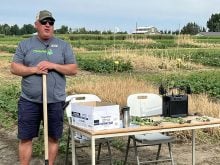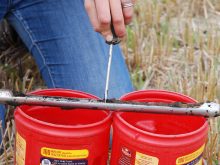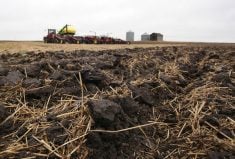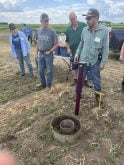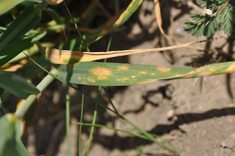Senator Rob Black says committee will seek more details on government’s response to Critical Ground in the new year
REGINA — The senator who led the Canadian soils study says farmers have to hold the government’s feet to the fire if they want the recommendations implemented.
Rob Black told a recent Agricultural Producers Association of Saskatchewan meeting that the Senate’s agriculture committee was “less than happy” with some of the government’s response, which offered support for many of the 25 recommendations in principle but no concrete promises.
The report, Critical Ground, was released in June, and the top three suggestions included the declaration of soil as a strategic national asset, the appointment of a national soils advocate and the development of a long-term soil strategy.
Read Also

Ways found to keep moisture with minimum till
New equipment options are available for Prairie grain growers wanting to step up their minimum-till seeding game, such as double disc seeders, coulter drills and low-disturbance shank drills.
The government said it “has a long history of recognizing the significance and importance of researching, managing, restoring and maintaining soil health, including responding to new emerging threats.”
It said soil conservation and health are core priorities for Agriculture Canada and pointed to support for the Soil Conservation Council of Canada to lead stakeholder engagement on developing a national soil health strategy.
The government also said the designation of an advocate is not under consideration right now.
Black said during his presentation the committee is disappointed that some of the key recommendations couldn’t be acted upon immediately and that so many were supported in principle only.
“Are you starting to see a trend here?” he asked as he went through the list.
He cited Ontario farmer Don Lobb, who told the committee there isn’t time to protect and conserve soil; it must be done now.
Thirty per cent of the world’s soil is already degraded, and that could rise to 90 per cent in 25 years, Black said.
Asked if a soil database, another recommendation, was possible, he said shortly after the report’s release, the government announced a $6.9-million investment over five years for a program centred at Dalhousie University.
That announcement on Sept. 5 noted research will take place across the country. The money comes from the Sustainable Agriculture Research Initiative grant, which is a joint initiative of the Natural Sciences and Engineering Research Council and the Social Sciences and Humanities Research Council, in collaboration with Agriculture Canada.
“I’ll say this about all the recommendations, I think we need to keep holding their feet to the fire, this government and any new government that might come into play in future months and years,” Black said.
“That’s incumbent upon all of us.”
He said that sentiment also applies when looking at what federal and provincial governments are planning for carbon credit systems. The Senate report recommends a co-operative approach to a better system, and Black said farmers can hold up the report as evidence of the need.
Black encouraged APAS to decide as an organization how it can best use the report to encourage adoption of the recommendations, perhaps in existing programs.
In the new year, the committee will call federal agriculture minister Lawrence MacAulay to appear to respond further to the report.
Meanwhile, in response to questions, Black said Bill C-293, the pandemic prevention and preparedness act, will be referred to a Senate committee, or maybe several committees.
“I would suggest it’s not going to go anywhere quickly. I know it’s something we all should be worried about and concerned about, but just know that there’s enough pushback in the Senate that I don’t believe it’s going to go anywhere fast without significant amendments,” he said.


